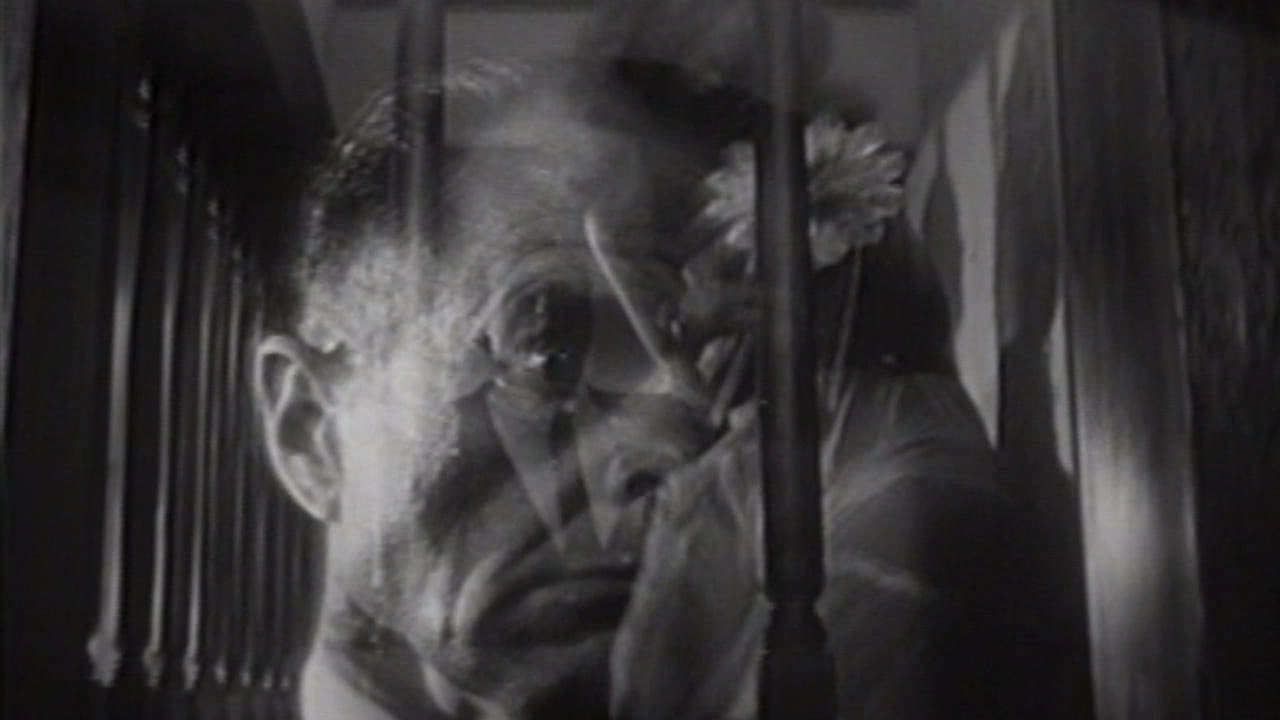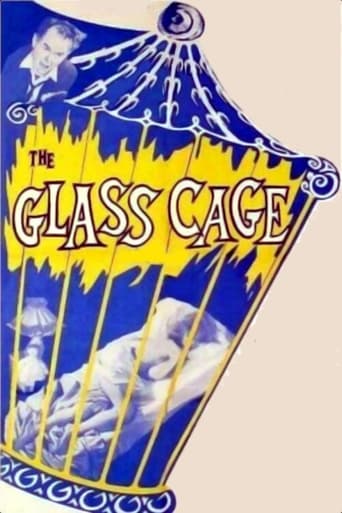Nonureva
Really Surprised!
ScoobyWell
Great visuals, story delivers no surprises
Dynamixor
The performances transcend the film's tropes, grounding it in characters that feel more complete than this subgenre often produces.
Fleur
Actress is magnificent and exudes a hypnotic screen presence in this affecting drama.
mgtbltp
The Glass Cage is a very Noir-ish styled Mystery with some great experimental cinematography. The tale begins at night in a Los Angeles Bunker Hill neighborhood. At a low rent dump called The Melvin, a "housekeeping apartments" converted Victorian apartment house. An attempted break in is abruptly thwarted. We see a hand break open a screen door we see a revolver in extreme close up. A muzzle flash. A man is shot. He tumbles doing a back flip down a flight of stairs breaks through the railing on a landing and falls vertically head first to the concrete pavement two stories below. A stream of blood flows quickly from his corpse towards a sewer drain.A crowd gathers and the LAPD arrives. A meat wagon is called in and a corpse is removed. In a macabre touch one of the coroners men, after they load the dead man on a wheeled gurney, sings dirge like "merrily we roll a long, roll a long, roll a long" as they glide off into the darkness. Two detectives are assigned to the case Lt. Max Westman (Hoyt), the by the book veteran and Sgt, Jeff Bradley (Keljan). The dead man turns out to be a local business man and not a burglar as suspected. The beautiful young woman Ellen (Sax) who shot him tells a story that conflicts with the facts, but Jeff is smitten by Ellen who comes off as sweet and demure and he believes her while Max stays aloof and by the book. Sax, later known as Arlene Martel, was a staple of 50s-60s TV. Ellen claims the intruder was in the kitchen when she shot him. When contradicted with the facts by Max she claims she really doesn't remember. When asked where she got the gun she says that her sister Ruth gave it to her for protection that same night. When questioned about any other relatives she says that her father is living in Arizona, Asked what he does for a living she says that he's an evangelist in a tone of voice that one would use to say he's a card carrying communist. Ellen is a troubled woman with serious daddy issues. King Moody who will remind you a bit of Timothy Carey is Tox, a kooky troubled beatnik artist who lives across the alley from Ellen. The police question Tox because he witnessed the events after the gunshot. Tox knows the score with Ellen Jeff doesn't. Jeff begins to get seriously involved with Ellen and Tox ever surveillant of the goings on in Ellen's apartment starts to have issues with Jeff moving in on his"good thing". He drops over later that day to "borrow a cup of sugar", but it isn't the granular kind that he's looking for. The rape of Ellen triggers a flashback/nightmare sequence where she is dressed in her prom gown carrying a bouquet and running through crowds of people away from an ominous man who walks with a cane. This sequence features experimental cinematography combined with Noir stylistics part of the chase sequence features the The Bradley Building an iconic location for Classic Noir.I was pleasantly surprised, the film was produced by Futuramic Productions whose only other efforts was Squad Car (1960) and Come Spy with Me (1967). Its Available on DVD from Sinister Cinema, it could use a full restoration 7/10
goblinhairedguy
It may not be a complete success, but this semi-experimental murder mystery is well worth checking out. The fragmentarily-edited opening scene of the killing of a prowler signals that the filmmakers won't be telling this tale in straightforward fashion. Instead they use a constant parade of off-kilter angles, Freudian dream and point-of-view sequences, jagged cutting and bizarre settings, along with existential dialog, to paint their lonely abstract world.The film fits into that sub-genre of thrillers/melodramas of the late 50s/early 60s involving psychologically damaged protagonists, with touches of the "Dementia"-style avant-garde. On the down side, much of the method-style emoting is over the top, the key to the mystery is telegraphed a bit too obviously, and the score is disappointingly melodramatic (plus, the boom mike makes many unfortunate appearances at the edges of the frame). But there's a fine cast of eccentrics, most notably Elisha Cook Jr. as the protagonist's creepy evangelist father, and ever-loony King Moody (channelling Timothy Carey) as a voyeuristic/exhibitionist conceptual artist who really can't handle rejection. As in "Blade Runner" and Joseph Losey's "M", L.A.'s Bradbury Building makes a welcome, surrealistic appearance in one of the dream sequences. And you won't believe where the climactic stand-off takes place. The title may be an homage to "The Glass Menagerie", but reminds me more of "Ride the Pink Horse". Save this one for 2:00 in the morning.
jobla
This is one of those little-known but marvelous low-budget wonders that occasionally surfaces. The shoestring budget doesn't detract from the experimental camera work and story telling. Even if you predict the surprise ending, you're in for a great ride as the police detectives investigate an unusually troubled young woman and her older sister. The film boasts some of the most experimental set pieces attempted in the early sixties.

